Sequencing Skills Worksheets for Ages 4-5
12 filtered results
-
From - To
Enhance your child's learning with our Sequencing Skills Worksheets for Ages 4-5! These engaging and interactive worksheets are designed to help young learners develop crucial sequencing abilities, which are vital for early reading and problem-solving skills. Each worksheet features colorful illustrations and age-appropriate activities that captivate children's attention while promoting critical thinking. From ordering events in stories to arranging images logically, our resources provide a fun, educational experience. Perfect for home or classroom use, these worksheets aim to nurture your child’s cognitive development and confidence. Discover the joy of learning through play with our thoughtfully crafted sequencing materials!
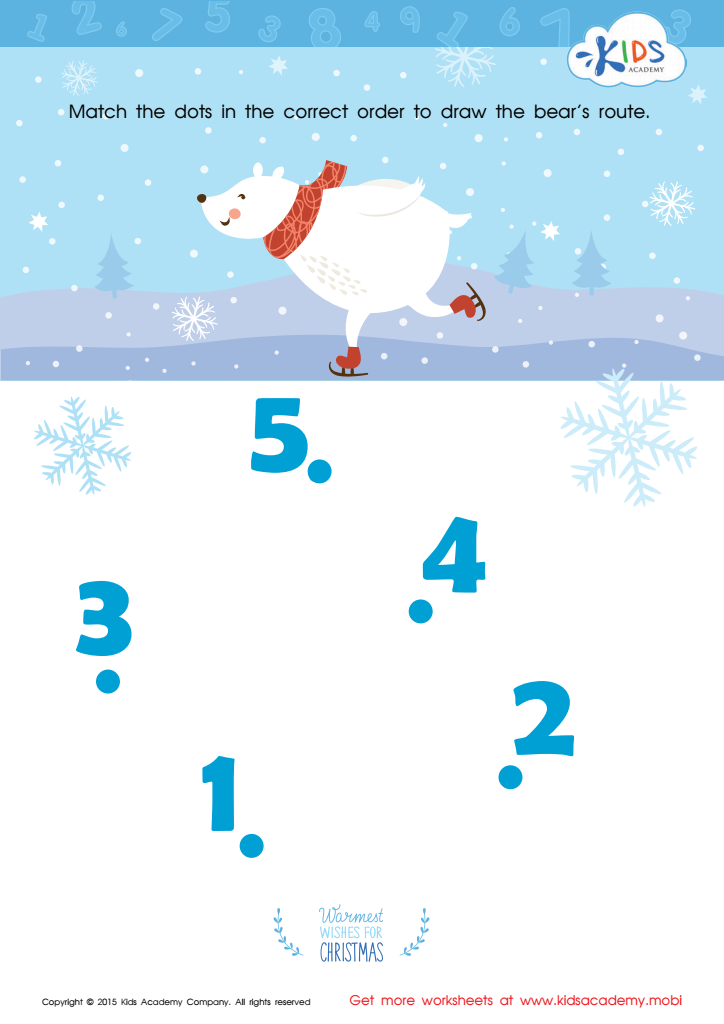

Drawing the Bear's Route by Number Worksheet
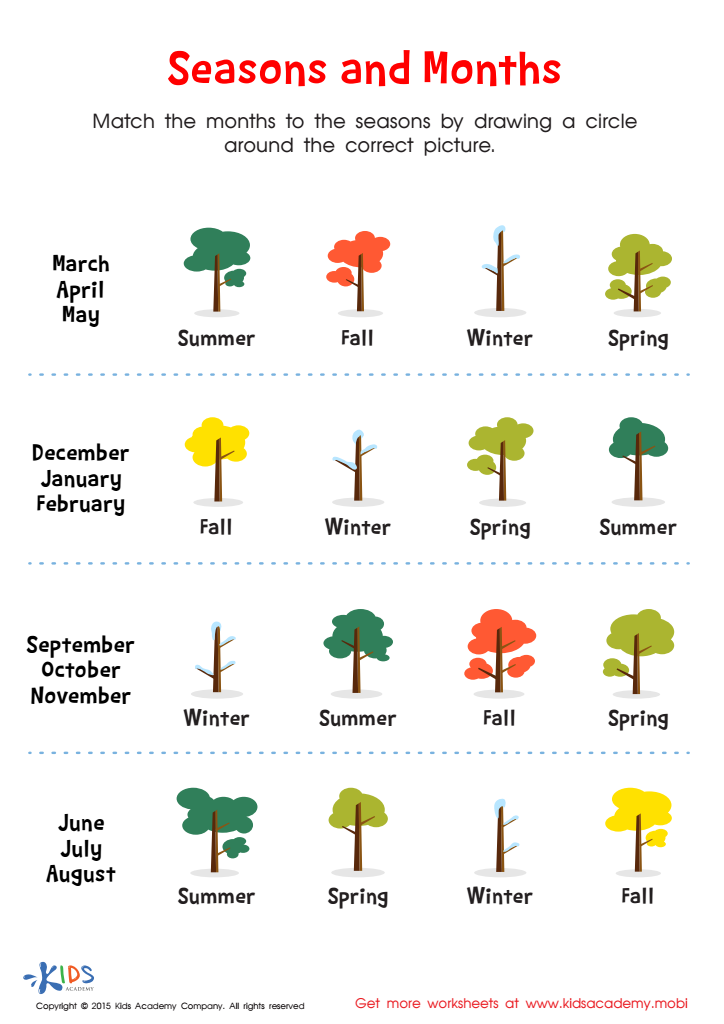

Seasons and Months Worksheet
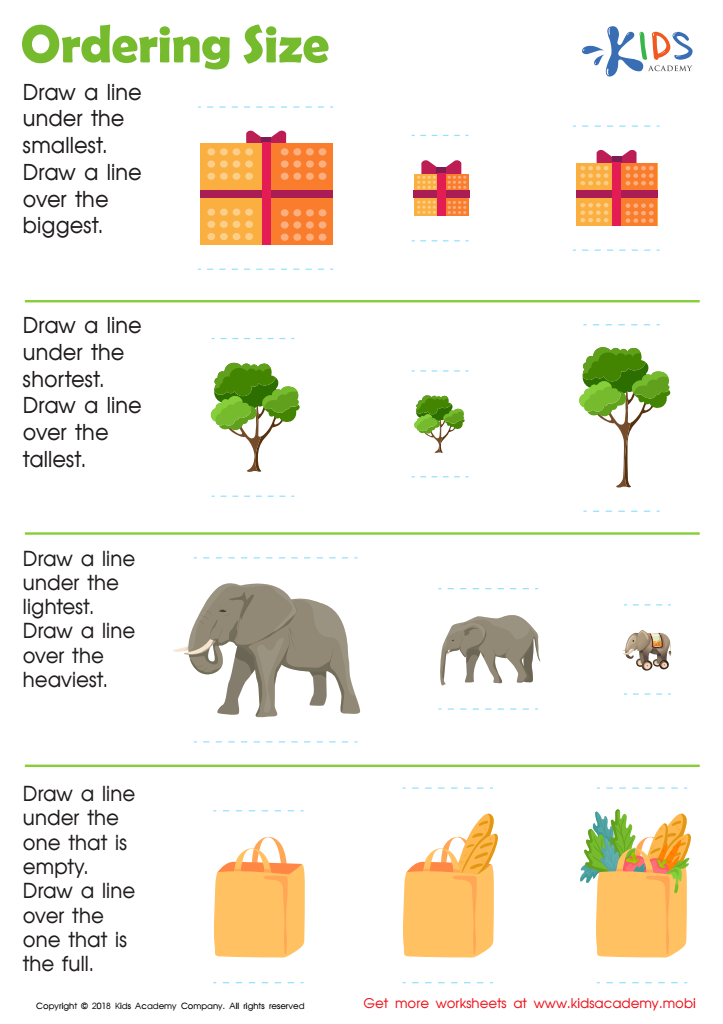

Ordering Size Worksheet
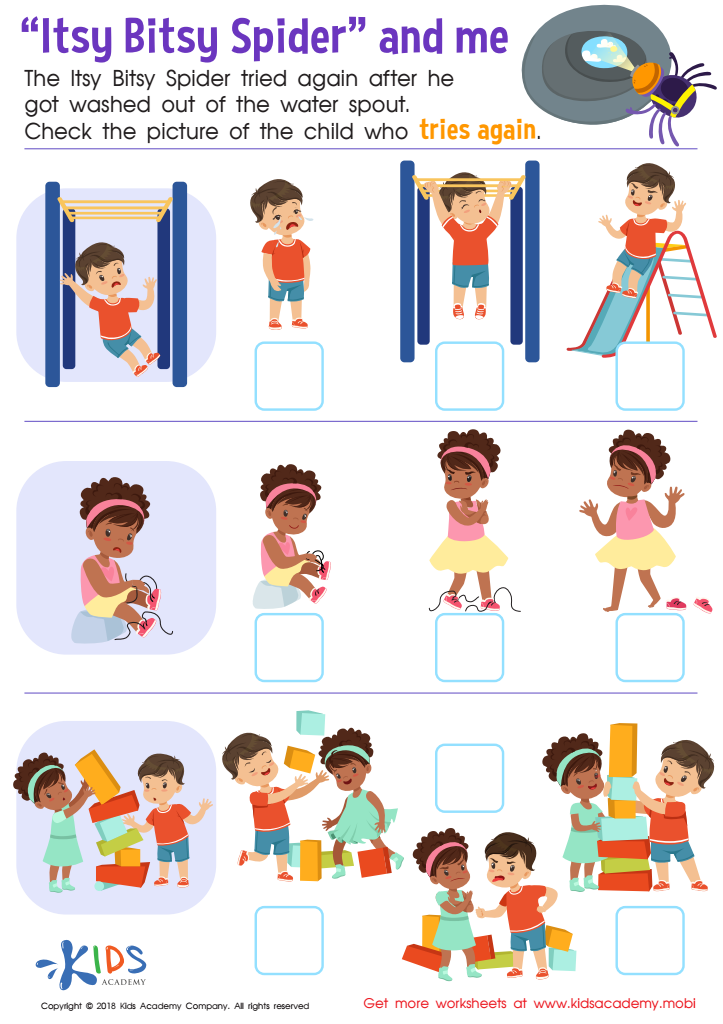

Itsy Bitsy Spider and Me Worksheet
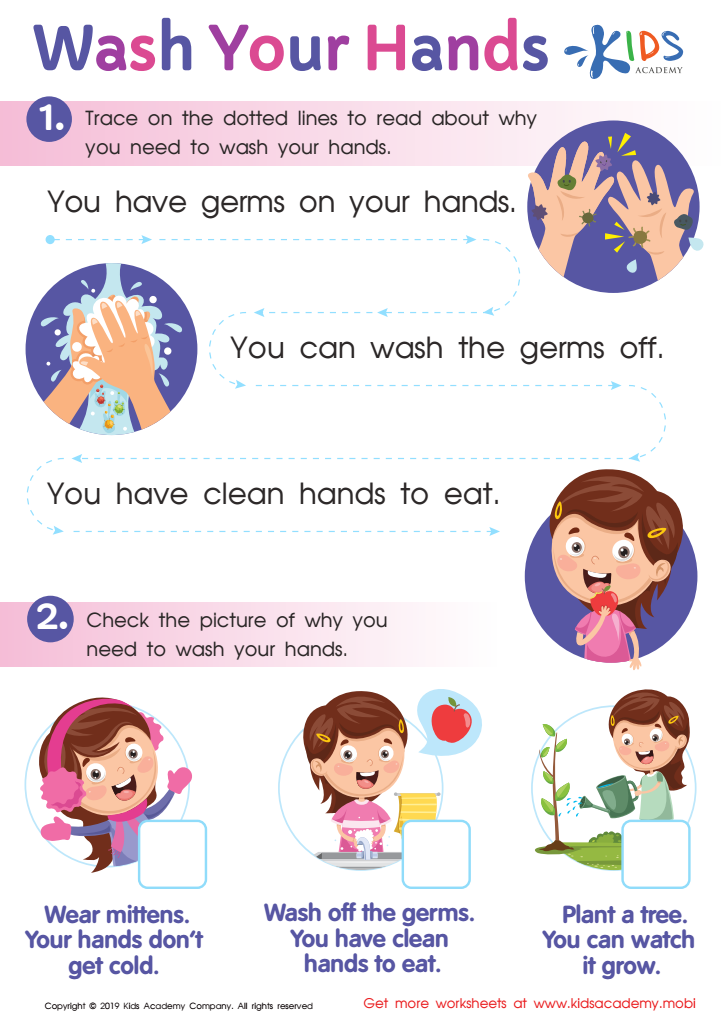

Wash Your Hands Worksheet
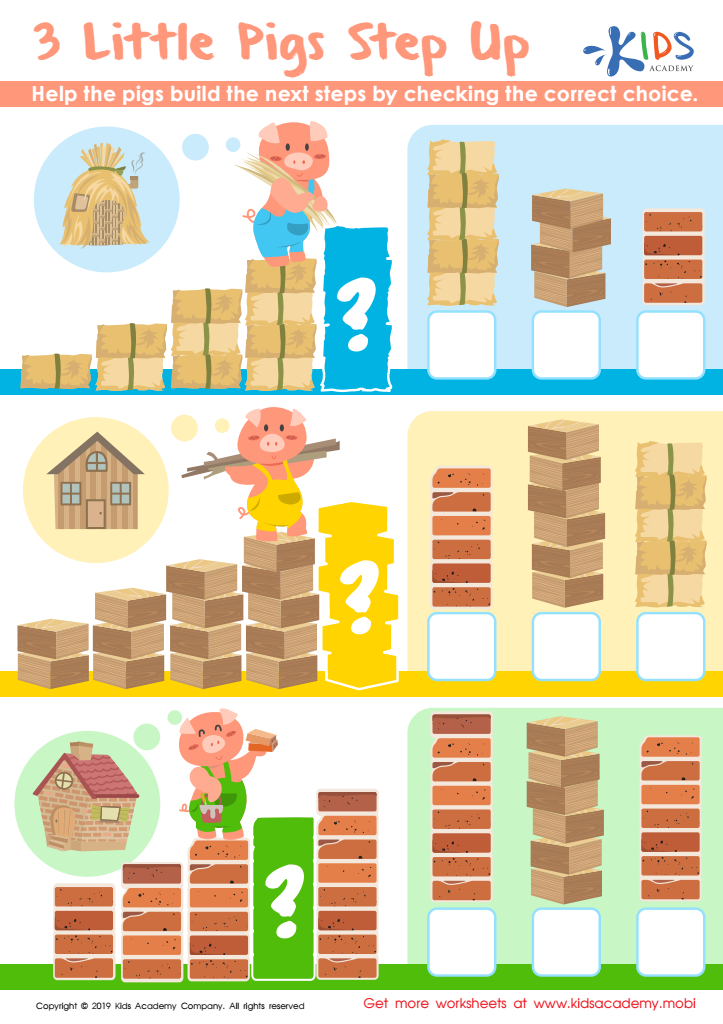

3 Little Pigs Step Up Worksheet
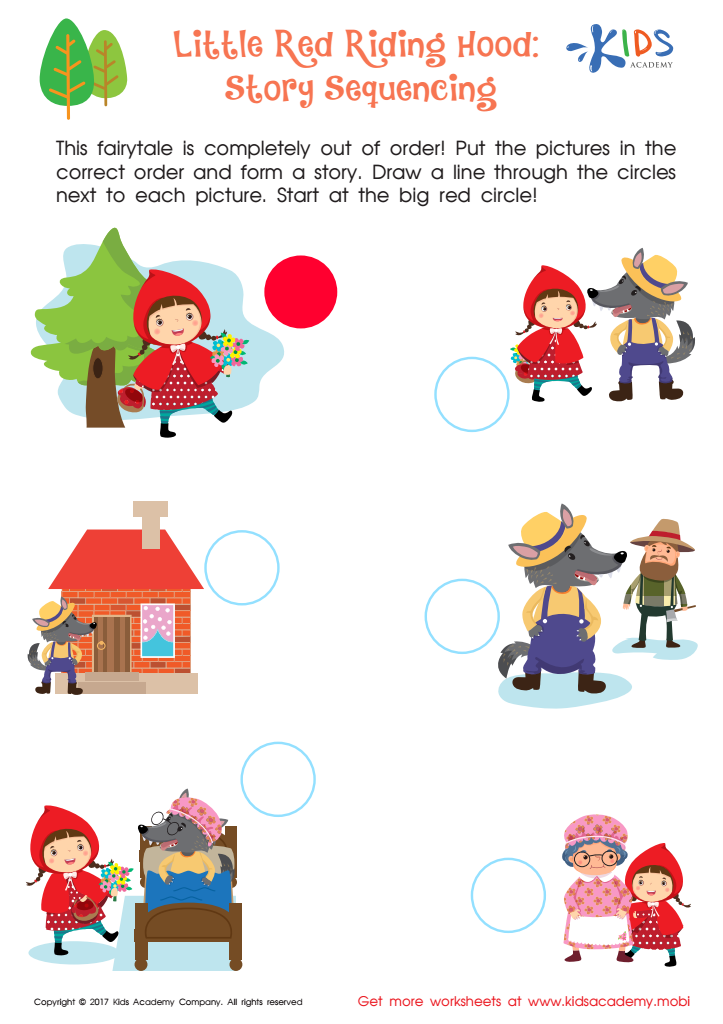

Story Sequencing Printable
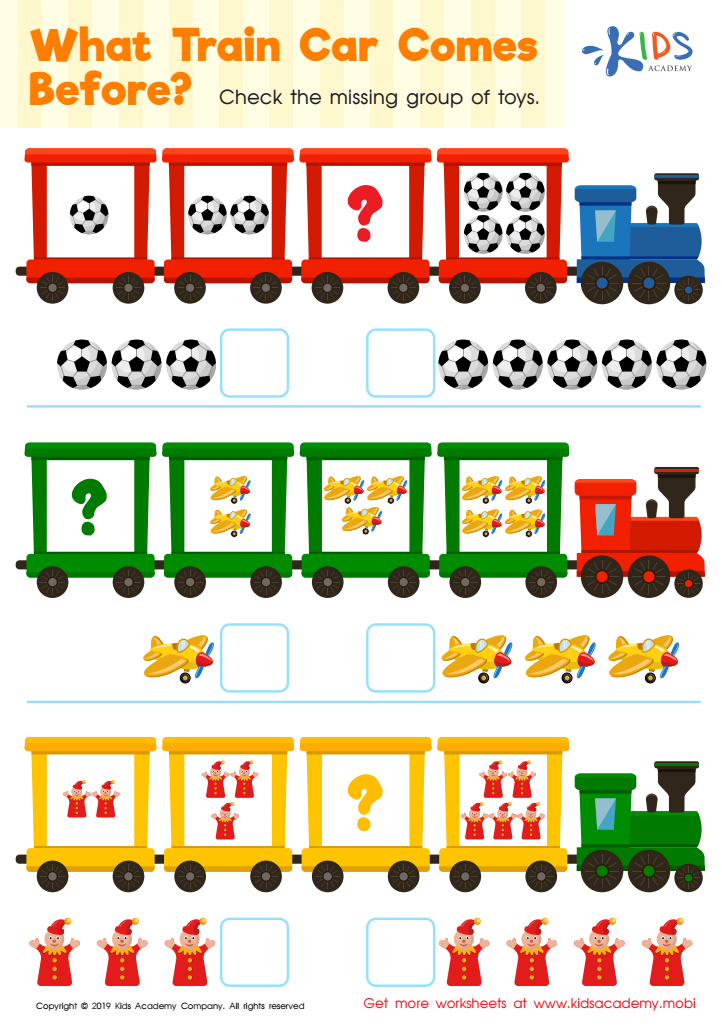

What Train Car Comes Before? Worksheet
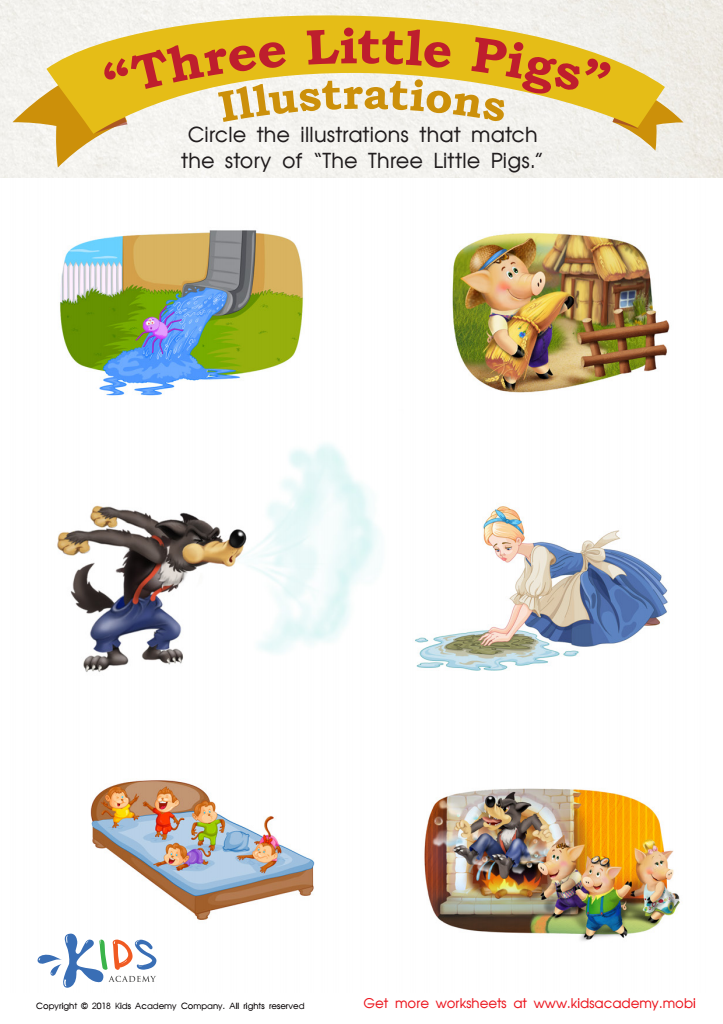

Three Little Pigs: Illustrations Worksheet
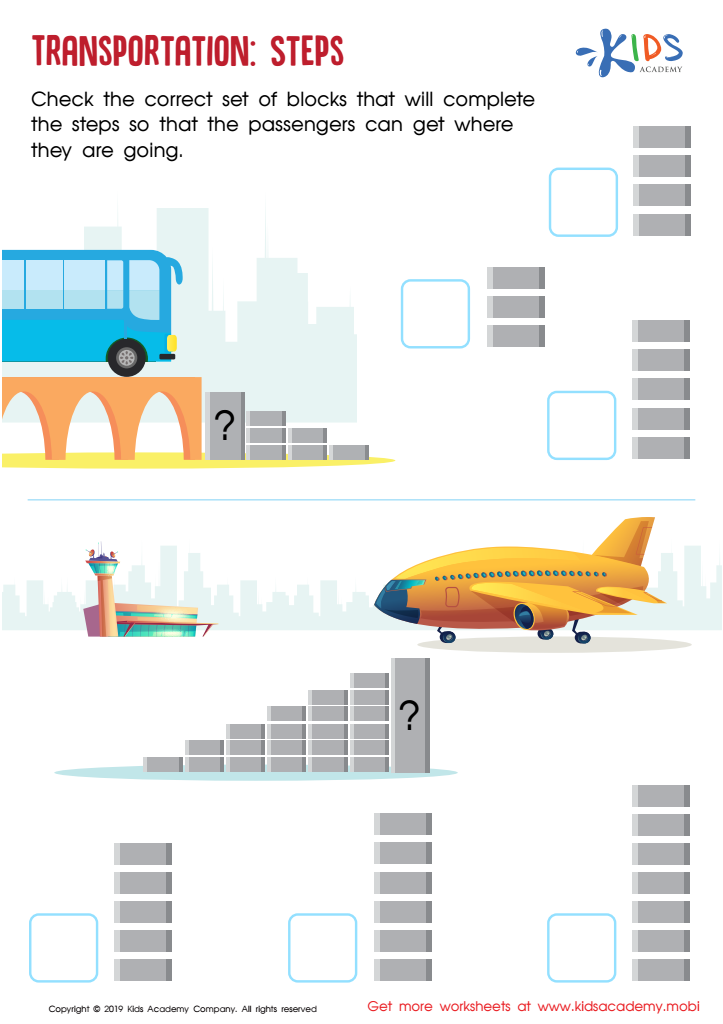

Transportation: Steps Worksheet
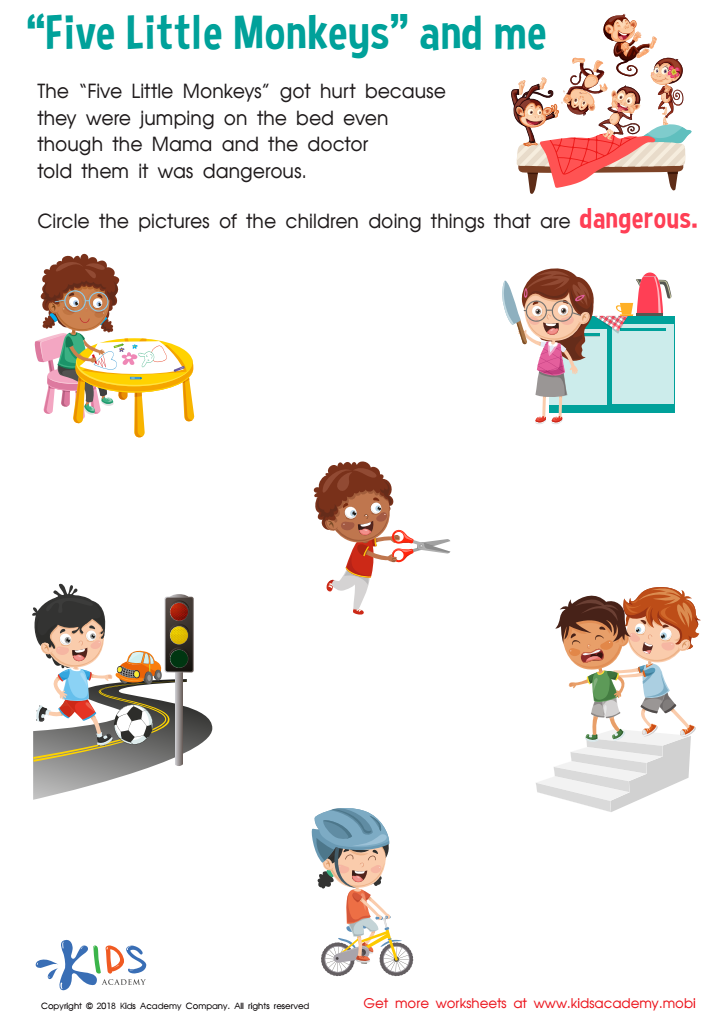

Five Little Monkeys and Me Worksheet
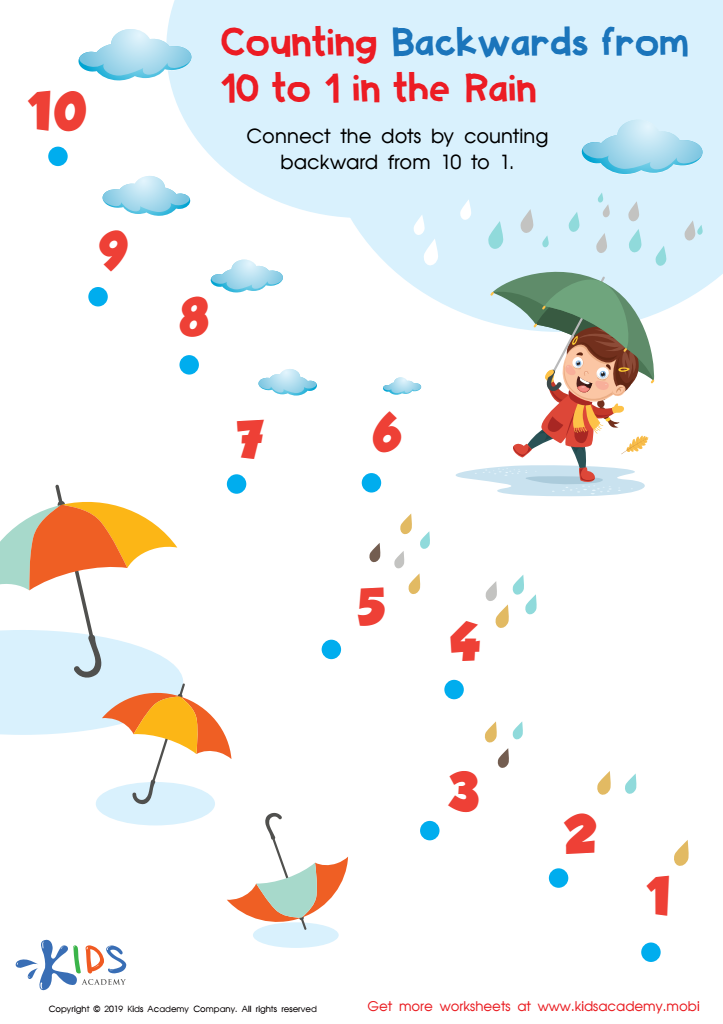

Counting Backwards from 10 to 1 in the Rain Worksheet
Sequencing skills are crucial for children aged 4-5 as they lay the foundation for literacy, math, and critical thinking. At this age, kids learn to comprehend and narrate stories, make logical connections, and follow instructions. By understanding sequencing—recognizing the order of events or steps—children develop the ability to organize their thoughts, which enhances their storytelling abilities and reading comprehension. For example, they can make sense of narratives by identifying the beginning, middle, and end, fostering engagement with stories and strengthening vocabulary.
Moreover, sequencing promotes problem-solving skills. When children can think sequentially, they are better equipped to handle everyday tasks, from following a recipe in cooking to completing a puzzle. This ability is essential for math, where understanding concepts like counting, patterns, and the order of operations is paramount.
For teachers and parents, fostering sequencing skills encourages independence and boosts confidence in young learners. Activities like storytelling, sorting, or creating schedules offer practical ways to develop sequencing. Caregivers who prioritize this skill are investing in holistic developmental benefits that support cognitive growth, social skills, and overall academic readiness, preparing children for a successful transition to elementary school and beyond.
 Assign to My Students
Assign to My Students






















